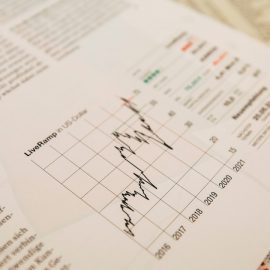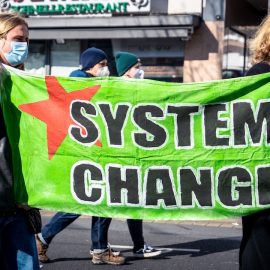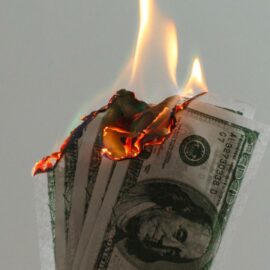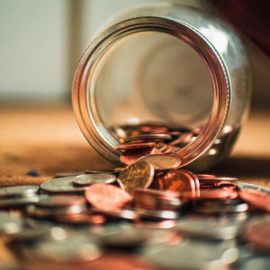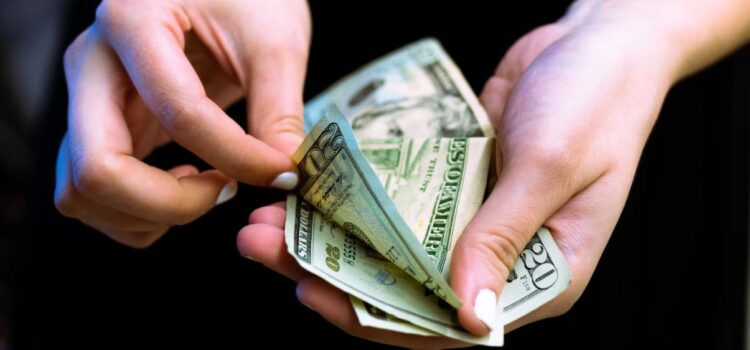
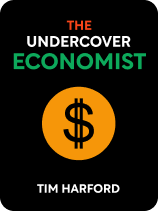
This article is an excerpt from the Shortform book guide to "The Undercover Economist" by Tim Harford. Shortform has the world's best summaries and analyses of books you should be reading.
Like this article? Sign up for a free trial here .
How does the free-market economic system work? How are goods priced in such an economy?
In the free-market economic system, products are generally almost equal to the marginal cost, or how much it costs to keep a business afloat. Plus, modest profits convince investors to keep their money in the business than in savings.
This article takes a look at how the free-market system and its implications for taxes and non-market goods.
The Free-Market System
Imagine, for a second, that everyone in the world has to tell the truth. You go to a coffee shop, and the barista asks you what you’d be willing to pay for the coffee. Being a caffeine addict, you reply, “$15.” But then, as the barista starts making the coffee, you ask, “How much did the beans cost? What about the machines, your salary, and everything else that it takes to run this place?” You find out that the total cost to make the coffee is less than a dollar. You keep going: “Are there any other places that sell similar coffee near here?” you ask. The barista responds that there are and that they sell coffee for a much lower price. You tell the barista that you’ll only buy the coffee at that lower price. You’ve managed to haggle what would have been a $15 coffee down to less than a dollar.
In a free-market economic system, when a seller sets an asking price, it’s equal to or higher than the cost to produce it. And when a buyer buys the product, the product is as valuable or more valuable to the buyer than the money changing hands. As the above example illustrates, lots of buyers value coffee more than they currently pay for it—you would have paid $15 for that coffee if necessary! Because the coffee market is competitive, though, firms are constantly trying to undercut one another to get your business. As such, the price of coffee is basically equal to the marginal cost.
This means that when it gets more expensive to make coffee, the price goes up. Anything from an employment shortage to a longer than expected cold season in Brazil can make coffee get more expensive. All of this exists within an incredibly complex global economy. We could choose to spend the money that we spend on coffee on anything else. If fewer people wanted coffee daily, there would be fewer coffee shops, and something else would go in that real estate.
This is true in any industry. Think about how the rise of technology-based jobs changed the economy. As personal computers became increasingly popular, there weren’t enough people who knew how to build them for the increasing demand. So, computer companies had to raise their salaries in the hopes of hoarding talent. Lots of people noticed that this industry was paying well, and so decided to go to college to get these high-paying jobs. They made the economic decision to spend money on college with the understanding that after getting a degree in computer science, they would be able to enter a high paying industry.
There are a few principles that explain why the free market works so well:
- Companies aren’t wasteful. If companies use outdated technology or waste too much time, they’ll go out of business. So they streamline building products efficiently.
- Companies make things people want (and price them well). To survive, companies make products that people want to buy and price them at a rate that people will buy them but they’ll still be able to survive. If they don’t succeed in this, once again, they’ll go out of business.
- Consumers buy products they want. Everyone who buys something essentially is entering into a compact that says they believe what they have just bought is worth the price.
These principles show that the free market is efficient. The companies that survive price popular goods at a rate that will make people buy enough of them for the company to stay afloat.
A Note on Efficiency
While we are striving for efficiency in the free market, we must remember that this doesn’t always produce a fair society. As a market concept, efficiency makes some people better off without making anyone worse off. But the efficient free market itself does not make everyone better off. A functioning society does have to rely on some non-market goods.
Non-Market Goods
While most of the goods and services in the West are part of the free market, there are also segments of society, like the police, that are not subject to the market. If you’re calling the police, you don’t decide whether you want to pay for them to respond. The government has decided that it’s a public good to afford its citizens protection. However, this system can lead to inefficiencies as well. If there’s a bad police officer who responds to your call, you can’t decide that you don’t want him to be your cop anymore—he’s there, and that’s it. Or, if you think there aren’t enough police in your neighborhood, you can’t hire more.
The same principles apply to public school systems. Some are good and some are bad, but basically the only way to improve them is to either petition the government or attempt to move to a better school district. The government system actually reinforces that rich people get better treatment and service than poor people. We can’t know whether parents would pay more for their childrens’ education than their tax burdens currently ask them to because they don’t have the option of doing so in a free market.
We want a lot of things from the government—better schools, better healthcare, better infrastructure. The problem is, it’s impossible to know what our actual collective priorities are if we can’t make the choice of where to invest the money ourselves. The free market loses information about what its denizens want. Now, this is not all bad. Sometimes the government can ensure equality with its social service programs. But without information about what people want, the government often flounders.
Taxes
Taxes are also a significant source of inefficiency in the marketplace. In the perfectly efficient marketplace, the price of something will be equal to all the costs associated with its production. But taxes raise that cost. Let’s say a sandwich costs exactly $10 to produce. With a 10% sales tax, the price of the sandwich then goes up to $11. If someone is only willing to pay up to $10.50 for the sandwich, they’ll end up not buying the sandwich at all. The business won’t make their $10 and the government won’t make their $1. Now, if the government knew that a customer would only pay $10.50, they’d be happy to levy a smaller tax—they’d rather have $0.50 than $0. So governments will engage in the same kind of behavior as companies do setting their prices when they set their taxes. Taxes on cigarettes, for example, are high because people are addicted to them, so they’ll pay larger fees than they might for a sandwich.
Head Start Theory
At first glance, it appears we’re left with choosing between whether we want our markets to be efficient and whether we want the government to be able to provide some degree of help to the less fortunate in society.
But in the post-WWII period, economist Kenneth Arrow came up with a different theory, which we’ll call “head start theory.” In a race, if we give the slower runners a head start, they’ll have a better shot at crossing the finish line ahead of the quicker runners. We can apply the same principles to the economy, according to Arrow.
To give some runners a head start, according to Arrow, the government needed to use lump-sum taxes and payments.
Lump-Sum Taxes and Payments
A lump-sum tax is what it sounds like—you make a group of people pay the government one equal sum of money. A lump-sum payment from the government is the opposite—the government gives some group of people one sum. Unlike sales tax or income tax, there’s nothing you can do to avoid these taxes, so they don’t change your behavior. A lump-sum tax is essentially making some runners wait to start the race after the starting gun, and a lump-sum payment from the government allows some runners to begin running before the starting gun.
The idea of this program in theory would be that, with these taxes/payments in place, the free market could do the rest—there would be no more need for a sales tax or income tax, which both create inefficiencies. In practice, though, it’s not so practical. The benefit of the lump-sum tax is that it doesn’t change your behavior, but in order for this to be true, it would be best to levy the tax at birth, before you have a chance to alter your behavior to avoid the tax. But while it’s possible to account for people’s economic circumstances before they are born, it’s not possible to account for who they’ll turn into. How would we levy a big lump-sum on a sports star who greatly exceeds expectations? And if we decide simply to levy the lump-sum taxes on kids who grow up wealthy, then we’ve basically created another form of income tax that parents will be willing to change their behavior to skirt. Nevertheless, there are some scenarios where the lump-sum taxes and payments can work. Think about the cost of heating in the winter. A lot of seniors need desperately to properly heat their homes or they’ll die. In the UK alone, 25,000 seniors per year die because of poor heating. If the government is practicing “price targeting,” it makes sense for the tax on heating materials to be high, because people need to heat their homes, so they’ll be willing to pay the tax. However, the fact that many seniors die due to poor heating suggests that maybe the government needs to lower their taxes. Instead of doing that, though, they can give seniors a heating stipend every year. This lump-sum payment helps the government continue to make good tax revenue while also doing a social good—it gives the seniors a head start. While they aren’t always practical, governments should always ask whether a lump-sum payment or tax can be better than any alternatives.

———End of Preview———
Like what you just read? Read the rest of the world's best book summary and analysis of Tim Harford's "The Undercover Economist" at Shortform .
Here's what you'll find in our full The Undercover Economist summary :
- How to think like an economist
- How to use principles like scarcity, price targeting, the stock market, and game theory to make better decisions every day
- Why the economy is mostly about people, not complex math, graphs, or jargon



